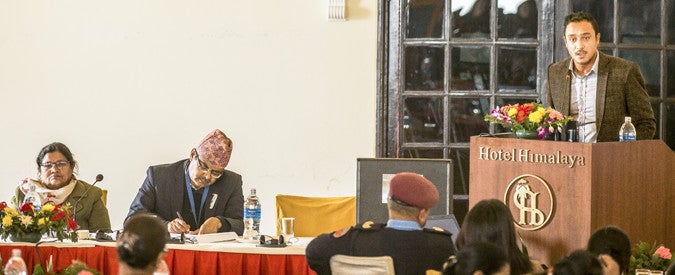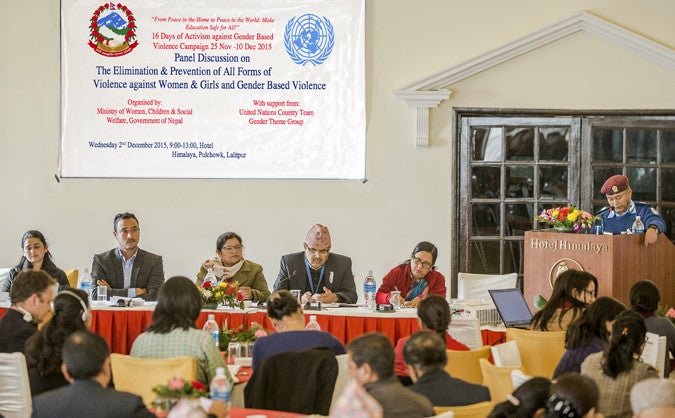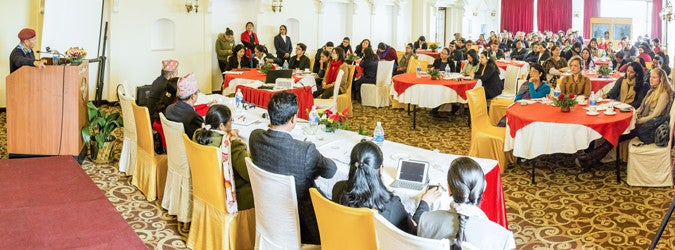Male Leaders’ Network launched in Nepal at National Meeting on Preventing Violence against Women
Date:
Kathmandu, Nepal – The Ministry of Women Children Social Welfare (MoWCSW) and UN Women set up Male Leaders’ Network in Nepal marking the 16Days of Activism against Gender-based Violence.

The launch happened at a panel discussion programme jointly organized with the UNCT Gender Theme Group on the Elimination and Prevention of All Forms of Violence against Women and Girls.
“Eliminating violence against women is not possible without men in the society playing active role,” said lawmakers, government and law enforcement officers, athletes, and members of the civil society who are now members of the newly established Male Leaders’ Network.
“Equality and activism to end gender discrimination starts from home,” said Paras Khadka, cricketer and, now, member of the MoWCSW-UN Women network. Khadka called upon all male members of the society to start with changing attitude against gender discrimination within themselves. Khadka addressed gender inequality and male sexual entitlement as root causes of violence against women.

“As Nepal progresses towards reconstruction, armed with the new constitution, women’s roles have to be vital in all aspects,” Khadka added. “We should not limit activism against gender discrimination to 16 days, it is a 365 days affair, the activism should include mass activism to create a chain reaction as more people follow and fight against gender discrimination,” added Mr Khadka.
Joint Secretary of Women, Children and Social Welfare, Radhika Aryal also emphasised the need to include men to promote gender equality, “men have access to resources and hold the decision-making power—two important components in fighting against gender inequality.”
The April and May earthquakes that hit Nepal exacerbated pre-earthquake gender inequalities in Nepali society and disproportionately affected women, said speakers. However the earthquake response has also provided opportunities to promote equitable participation of men and women. “It presents opportunity to ‘build back better’ by establishing equal gender relations and longer-term sustainable development,” said Jamie McGoldrick, Resident Coordinator to the United Nations in Nepal.
Former member of Nepal’s National Planning Commission Dr. Bimala Rai Paudyal said Post Disaster Needs Assessment (PDNA) is comprehensive and has integrated gender and disaster chapter with the support of UN Women and other agencies. However she added, “women’s participation and mainstreaming gender throughout the post disaster related initiatives and structure is crucial.”

After years of deliberation and political deadlock, Nepal promulgated a new constitution in October, only six months after the devastating earthquake. Officers at Nepal’s Ministry of Law, Justice and Social Affairs say that the constitution is flexible and very progressive and ensures that there is gender equality. “The preamble of the constitution ensures that there will be no gender discrimination,” said Lila Devi Gadtaula, joint Secretary at the ministry.
Binda Pandey, former Chair of Committee on the Fundamental Rights and Directive Principle of the Nepal’s Constituent Assembly said that while the new constitution is an improvement to the past constitutions, there are still gaps and contradictions, especially when it comes to women’s rights.